 W
WMax van Berchem was a Swiss epigraphist and historian. Best known as a pioneer of Arabic epigraphy, he created "Corpus Inscriptionum Arabicarum", an impressive collection of Arabic inscriptions.
 W
WJean-François Bergier was a Swiss historian. He was a professor at the University of Geneva from 1963 to 1969 and at the Swiss Federal Institute of Technology in Zurich until his retirement in 1999.
 W
WJohann Jakob Blumer was a Swiss statesman.
 W
WAlbrecht von Bonstetten was a Swiss humanist of the later 15th century. A member of the baronial von Bonstetten family, he entered Einsiedeln Abbey at a young age, and after studies in Fribourg and Basel he returned to Einsiedeln and was made deacon in 1469. He studied canon law at Pavia and was ordained a priest in 1474, and he received the title of doctor utriusque iuris from Emperor Maximilian in 1498.
 W
WCharles Moïse Briquet was a noted Swiss filigranologist. He was the first, or among the first, to suggest the use of watermarks for dating paper. He produced in 1907 the mammoth four-volume work Les Filigranes. His papers, including his collection of traced watermarks, are kept at the Bibliothèque de Genève.
 W
WCarl Jacob Burckhardt was a Swiss diplomat and historian. His career alternated between periods of academic historical research and diplomatic postings; the most prominent of the latter were League of Nations High Commissioner for the Free City of Danzig (1937–39) and President of the International Committee of the Red Cross (1945–48).
 W
WCharles de Loys de Cheseaux (1730–1789) was a Swiss historian.
 W
WGeorges-André Chevallaz was a Swiss historian, politician and member of the Swiss Federal Council (1974–1983).
 W
WPetermann Etterlin was born in Lucerne as the son of Egloff Etterlin, who served as chronicler of the city of Lucerne from 1427 to 1453. Although his parents had destined him for an ecclesiastical career, Etterlin never became a clergyman. In 1464, Etterlin was appointed copyist of the city of Lucerne.
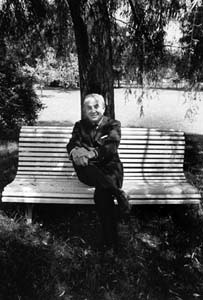 W
WJacques Freymond was a Swiss political historian.
 W
WDaniele Ganser is a Swiss author. He is best known for his 2005 book NATO's Secret Armies, an adaption of his 2001 dissertation.
 W
WFrédéric Charles Jean Gingins de la Sarraz was a Swiss historian and botanist.
 W
WRobert Glutz-Blotzheim, name also given as Robert Glutz von Blotzheim was a Swiss librarian and historian.
 W
WOtto Hauser was a Swiss prehistorian.
 W
WAline Helg is a historian, specializing in the history of slavery. She is known for her research and books on the history of revolutions, the Americas, the African diaspora, civil rights, racism and ethnicity.
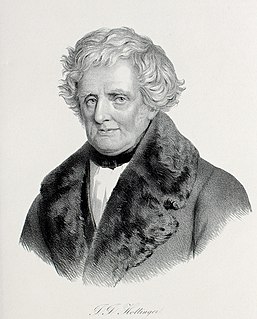 W
WJohann Jakob Hottinger was a Swiss historian. He was a great-grandson of philologist Johann Heinrich Hottinger (1620–1667).
 W
WWerner Kaegi (1901–1979) was a Swiss historian. He is best known for a single work, a biography of Jacob Burkhardt. This appeared in seven volumes, from 1947 to 1982.
 W
WGilbert Kaenel, known as "Auguste", was a Swiss archaeologist and historian specialising in the protohistoric and classical periods. He was the director of the Cantonal Museum of Archaeology and History from 1985 to 2014 and a professor at the University of Geneva. Kaenel was known for his research on the La Tène culture in Switzerland, including his excavations at the eponymous site of La Tène.
 W
WClaude Longchamp is a Swiss historian and political scientist. He is a prominent political analyst for Swiss national television and radio, and he is the main figure behind the research institute gfs.berne, which conducts both the main pre- and post-vote polls and projections of national votes in Switzerland.
 W
WThomas Maissen is a professor of modern history at Heidelberg University and co-director of the Cluster of Excellence "Asia and Europe in a Global Context". As of September 2013 he is detached as director of the German Historical Institute in Paris.
 W
WMin Li Marti is a Swiss sociologist, historian, publisher and politician of the Social Democratic Party of Switzerland (SP).
 W
WJean-Henri Merle d'Aubigné was a Swiss Protestant minister and historian of the Reformation.
 W
WCharles Monnard was a Swiss historian.
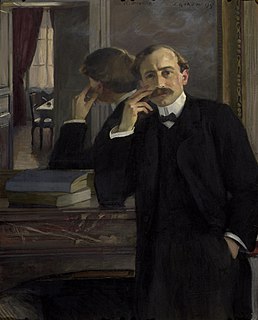 W
WPhilippe Monnier was a Swiss writer in the French language.
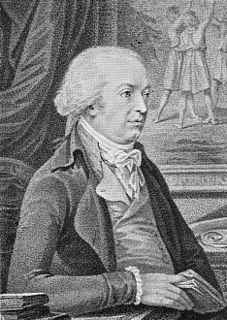 W
WJohannes von Müller was a Swiss historian.
 W
WWilhelm Oechsli was a Swiss historian.
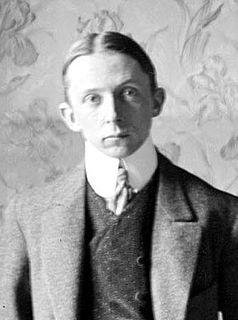 W
WGonzague de Reynold was a Swiss writer, historian, and right-wing political activist. Over the course of his six-decade career, he wrote more than thirty books outlining his traditionalist Catholic and Swiss nationalist worldview.
 W
WJean Charles Léonard de Sismondi, whose real name was Simonde, was a historian and political economist, who is best known for his works on French and Italian history, and his economic ideas. His Nouveaux principes d'économie politique, ou de la richesse dans ses rapports avec la population (1819) represents the first liberal critique of laissez-faire economics. He was one of the pioneering advocates of unemployment insurance, sickness benefits, a progressive tax, regulation of working hours, and a pension scheme. He was also the first to coin the term proletariat to refer to the working class created under capitalism, and his discussion of mieux value anticipates the Marxist concept of surplus value. According to Gareth Stedman Jones, "much of what Sismondi wrote became part of the standard repertoire of socialist criticism of modern industry."
 W
WFortunato Bartolomeo de Felice, 2nd Comte de Panzutti, also known as Fortuné-Barthélemy de Félice and Francesco Placido Bartolomeo De Felice, was an Italian nobleman, a famed author, philosopher, scientist, and is said to have been one of the most important publishers of the 18th century. He is considered a pioneer of education in Switzerland, and a formative contributor to the European Enlightenment.
 W
WAegidius Tschudi was a Swiss statesman and historian, an eminent member of the Tschudi family of Glarus, Switzerland. His best known work is the Chronicon Helveticum, a history of the early Swiss Confederation.
 W
WLouis Vulliemin was a Swiss theologian and historian.
 W
WFriedrich Emil Welti was a Swiss business manager and legal historian; one of the most influential figures in the Swiss insurance industry. His father was the Federal Councilor, Emil Welti and his first wife was Lydia Escher, a major patron of the arts.
 W
WGeorg von Wyß was a Swiss historian. He was born and died in Zürich.
 W
WBéat Fidèle Antoine Jean Dominique de La Tour-Châtillon de Zurlauben (1720–1799) was a distinguished soldier in the French army and Swiss historian.